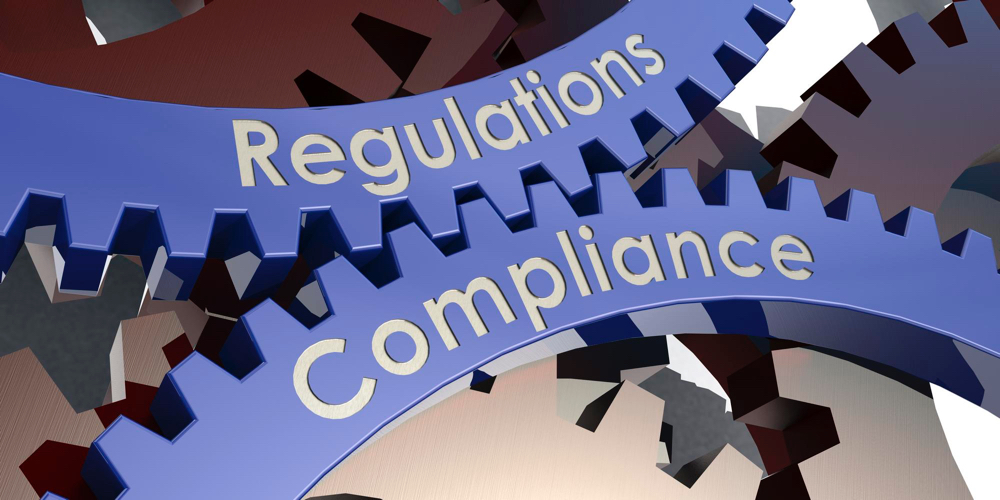The Regulatory Implications of Payment Technologies in the Modern Era

In an era where mobile payments and contactless card transactions are gaining popularity, concerns about the security of payment technologies and the regulatory implications surrounding them are in the spotlight, states Alex Clere in his original article for FinTech Magazine. According to research from UK Finance and YouGov, a significant number of adults in the UK and the US are embracing these new payment methods.
As the adoption of mobile payments and contactless transactions increases, payment service providers and processors bear the responsibility of ensuring the security of these technologies. The question arises: what are the key security considerations, and what existing regulations govern them?
Andrew Neeson, the Managing Editor and Research Director at regulatory intelligence firm VIXIO, emphasizes the trade-off between security, cost, and ease of use in the payment landscape. Striking the right balance among these factors is crucial. For instance, contactless payments have simplified transactions for consumers and merchants, but they come with reduced security measures such as the absence of PIN authentication. To mitigate risks, maximum spend limits are imposed. These limits can be adjusted as understanding of risk improves or for public policy reasons, as demonstrated by the temporary increase in contactless limits during the COVID-19 pandemic. Regulators play a vital role in managing this trade-off.
The introduction of Secure Customer Authentication (SCA) stands out as a significant regulatory intervention in transactional security in the European Union and the UK. With a few exceptions, banks now require two forms of identification at checkout, ensuring a multi-factor authentication approach. However, the implementation of SCA faced criticism from payment firms and merchants who were concerned about potential negative effects on sales due to increased friction in the payment process. The European Banking Authority’s chief acknowledged the challenges faced in striking the right balance, stating that their goal was to make everyone equally dissatisfied with the rules and guidance they oversee.
The boom in contactless payments during the pandemic has raised concerns about card security. UK Finance’s data reveals that almost 70% of debit card transactions in the UK are now contactless. Andrew Novoselsky, CPO at Sumsub, highlights the rise in contactless payment popularity but also points out vulnerabilities in the system. Hackers have exploited stolen credit card data to conduct fraudulent transactions through mobile payment platforms like Apple Pay, Samsung Pay, and Google Pay. Detecting such fraud can be challenging, making it easier for criminals to evade detection. To address this issue, financial institutions must invest in robust security measures, including transaction monitoring powered by artificial intelligence (AI) to proactively detect and prevent fraudulent transactions. Additionally, user education on safe mobile payment practices and the risks associated with storing sensitive data on mobile devices is crucial.
Looking ahead, as new payment technologies emerge, there will be a need for enhanced regulatory safeguards to protect consumers from abuse and fraud. The future may bring innovations like in-car parking payments and smart refrigerator grocery orders. However, alongside these opportunities, regulatory challenges will arise. Andrew Neeson of VIXIO notes that although the underlying technology may change, the payments infrastructure should remain secure. Regulators often lag behind fast-changing technologies and consumer habits, intervening when potential risks and market maturity become apparent. For example, buy-now-pay-later services have operated outside existing consumer credit regulations in many countries, but as the market matures, several countries have started to bring them under regulatory oversight.
The security and regulatory implications of payment technologies are crucial considerations as we increasingly rely on mobile payments and contactless transactions. Striking the right balance between security, cost, and user experience is a constant challenge for regulators and industry stakeholders alike. As new technologies emerge, regulators must adapt and enact appropriate safeguards to ensure consumer protection and mitigate risks in an ever-ever-changing landscape. The introduction of Secure Customer Authentication (SCA) and the need for transaction monitoring are examples of regulatory measures aimed at addressing security concerns. Financial institutions must invest in robust security measures and educate users about safe practices to combat fraud.
Looking ahead, the future of payments regulation will likely involve the implementation of greater safeguards to protect consumers from abuse and fraud. As innovative technologies continue to reshape the payment landscape, regulators will face new challenges in ensuring the integrity and security of transactions. Striking a balance between innovation and regulation will be key to fostering a safe and efficient payment system.